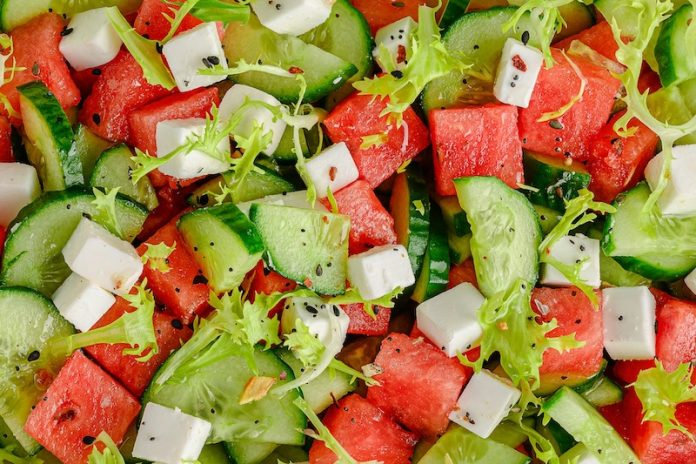
A large new study from the University of Hawaiʻi Cancer Center has found that following a brain-healthy eating pattern called the MIND diet can lower the risk of Alzheimer’s disease and related dementias. The research also showed that even if people only started eating this way later in life, they could still benefit.
The MIND diet, which stands for Mediterranean-DASH Intervention for Neurodegenerative Delay, is a mix of two well-known diets: the Mediterranean diet and the DASH diet (Dietary Approaches to Stop Hypertension).
Together, they focus on foods that help keep the brain healthy. These include leafy green vegetables, berries, nuts, whole grains, olive oil, and fish, while limiting red meat, fried food, butter, and sugary snacks.
The study used data from nearly 93,000 adults in the United States who were part of the Multiethnic Cohort—a long-term research project led by the University of Hawaiʻi and the University of Southern California. The participants were between the ages of 45 and 75 when the study began, and over 21,000 of them developed dementia during the following years.
One of the key findings was that people who gradually improved their eating habits and stuck more closely to the MIND diet over 10 years had a 25% lower risk of developing dementia compared to those whose diets became less healthy over time.
In other words, it’s not just what you ate in the past that matters—making better food choices as you age still offers meaningful protection for your brain.
According to lead author Professor Song-Yi Park, this is good news: “It’s never too late to make changes. Eating more plant-based, nutrient-rich foods—even later in life—can protect your brain.”
The study also found that the benefits of the MIND diet were stronger in some racial and ethnic groups than in others. Specifically, African American, Latino, and white participants saw clearer reductions in dementia risk. For Native Hawaiian and Asian American participants, the protective effect was weaker or not clearly seen.
Researchers believe this may be due to cultural eating habits and differences in how often dementia is diagnosed across these groups. For instance, some populations may naturally eat more vegetables or fish already, or they may have lower baseline rates of dementia, which makes the diet’s effect harder to measure.
These findings were shared during Alzheimer’s and Brain Awareness Month and presented at a major nutrition conference, NUTRITION 2025. The research team included scientists from the UH Cancer Center, USC, and the Pacific Health Research and Education Institute.
The study adds to growing evidence that what we eat can influence how well our brains age. While the MIND diet won’t prevent all cases of dementia, it seems to offer a powerful way to reduce risk—especially when followed consistently.
Even more encouraging is the idea that it’s never too late to start. Choosing brain-friendly foods like greens, berries, and nuts might be one of the simplest ways to protect memory and thinking as we grow older.
If you care about dementia, please read studies about the power of healthy fats for brain health, and wild blueberries can benefit your heart and brain..
For more health information, please see recent studies about how eating nuts can affect your cognitive ability, and brain foods nourish your mind to outsmart dementia.
Copyright © 2025 Knowridge Science Report. All rights reserved.



